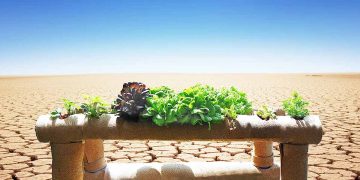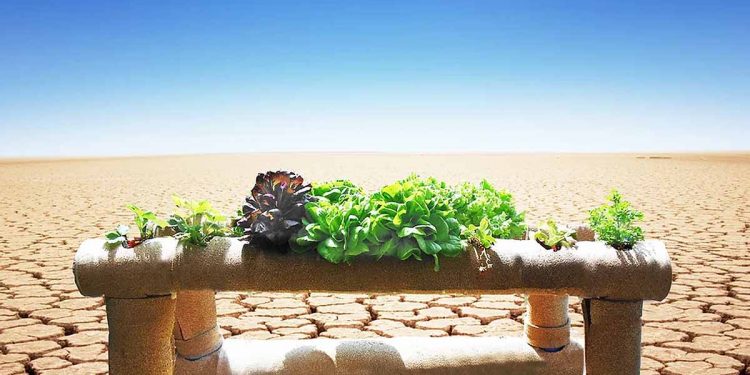As the world’s population continues to grow and urban spaces expand, traditional agriculture faces increasing pressure. As arable land becomes increasingly scarce, the need for innovative agricultural solutions is greater than ever. Introducing Meaplant, an innovative hydroponic system developed by Italian scientists Dr. Catherine Allera and Dr. Enrico Masella. This revolutionary technology allows vegetables to be grown on vertical surfaces and rooftops, offering a sustainable and efficient alternative to traditional farming.
Meaplant’s design is inspired by nature’s ingenious water management systems, a principle known as biomimicry. Dr. Allera and Dr. Masella, originally from San Remo, took into account the ability of spider webs to trap dew and the ability of cacti to retain water to create a system that minimizes water consumption while maximizing yield. Their hydroponic solution can be used by individuals for their gardens, even on balconies, as well as by municipalities to create urban green spaces.
Key advantages of Meaplant:
Water Efficiency: One of the most remarkable features of Meaplant is its ability to reduce water consumption by up to 90% compared to traditional soil-based farming. This is especially important in regions experiencing water shortages.
Use of space: By enabling vertical farming on walls and roofs, Meaplant makes efficient use of limited urban space. This approach not only increases the amount of green space in cities, but also helps cool cities and improve air quality.
Increased Yields: Hydroponic systems such as Meaplant often result in higher yields. According to a University of Arizona study, plants grown hydroponically can produce 30% more yield than plants grown in soil due to optimal nutrient delivery and controlled growing conditions.
Sustainability: Meaplant supports sustainable agriculture by eliminating the need for pesticides and reducing the carbon emissions associated with transporting produce from rural farms to urban consumers.
Accessibility: Designed for ease of use, Meaplant does not require special skills or extensive agricultural knowledge, making it accessible to a wide range of users, from urban gardeners to large growers.
Global Impact and Potential:
The potential applications of Meaplant are enormous. In urban environments, it can transform rooftops and building facades into productive agricultural spaces, promoting food security and reducing the urban heat island effect. On a global scale, Meaplant has the potential to be a game changer in regions with limited arable land and water resources, providing a viable solution to combat hunger and food shortages.
Supporting data:
The effectiveness of hydroponic systems in urban agriculture is well documented. According to the Food and Agriculture Organization (FAO), urban agriculture can increase food security, improve nutrition and create economic opportunity. A report from the International Journal of Environmental Research and Public Health highlights that hydroponic systems can produce vegetables with fewer resources, making them ideal for densely populated areas.
Meaplant represents a significant step forward in the development of sustainable agriculture. Using the principles of biomimicry and hydroponics, this innovative system offers a practical solution to the problems associated with urbanization and resource scarcity. As we look to a future in which traditional agriculture may not be enough, technologies like Meaplant will be essential to ensuring food security and environmental sustainability.































